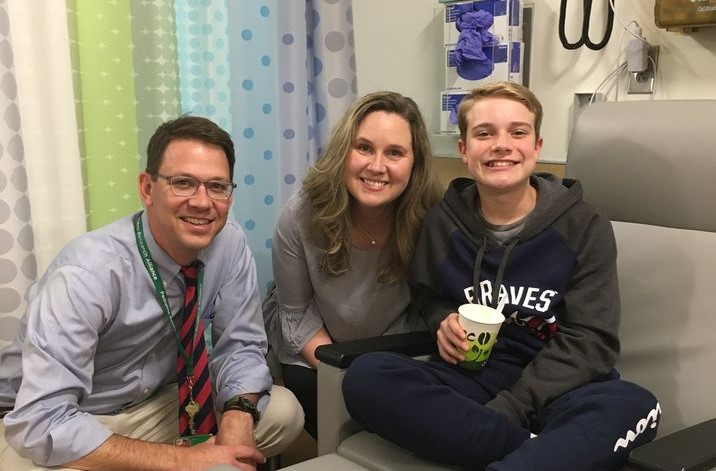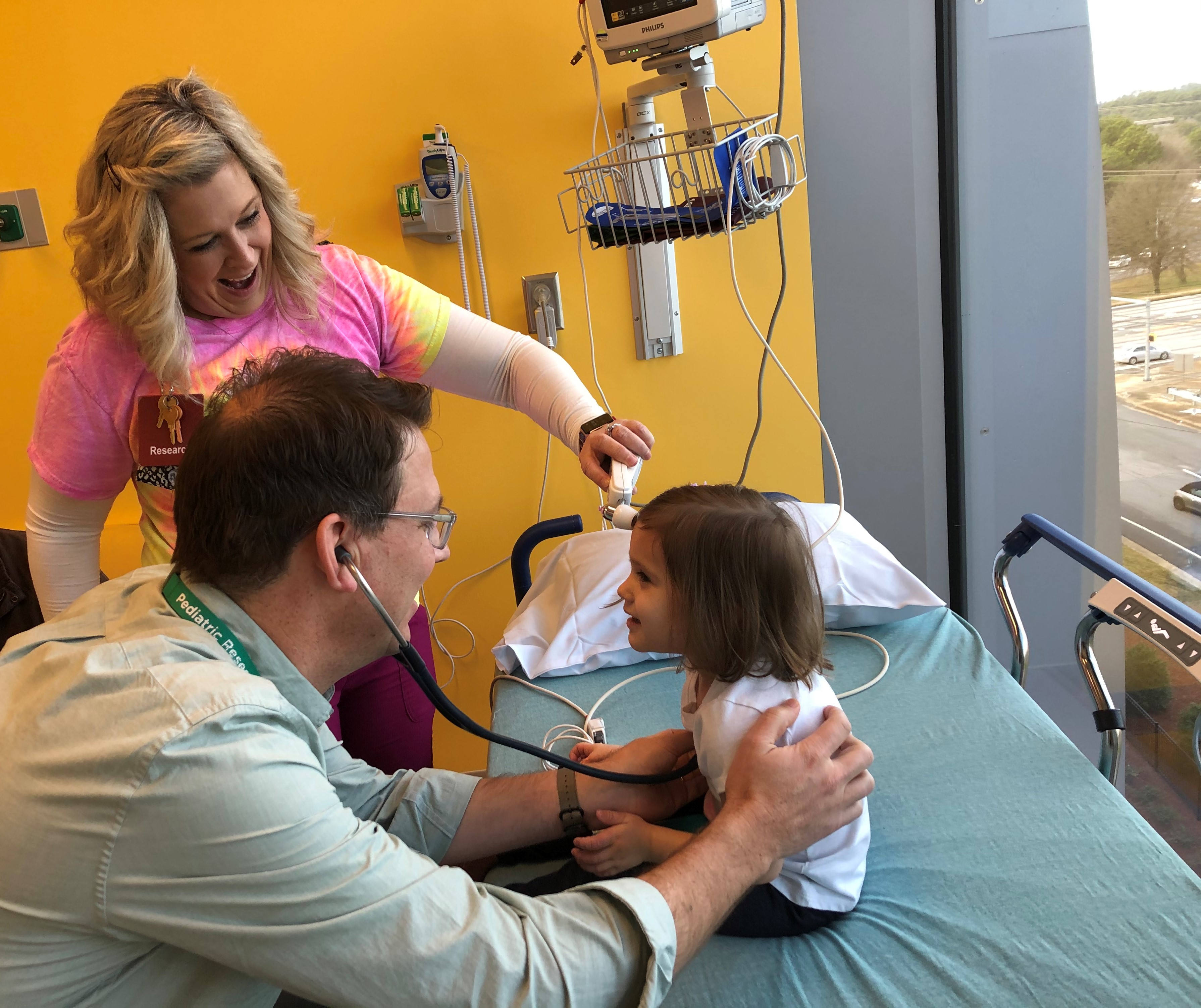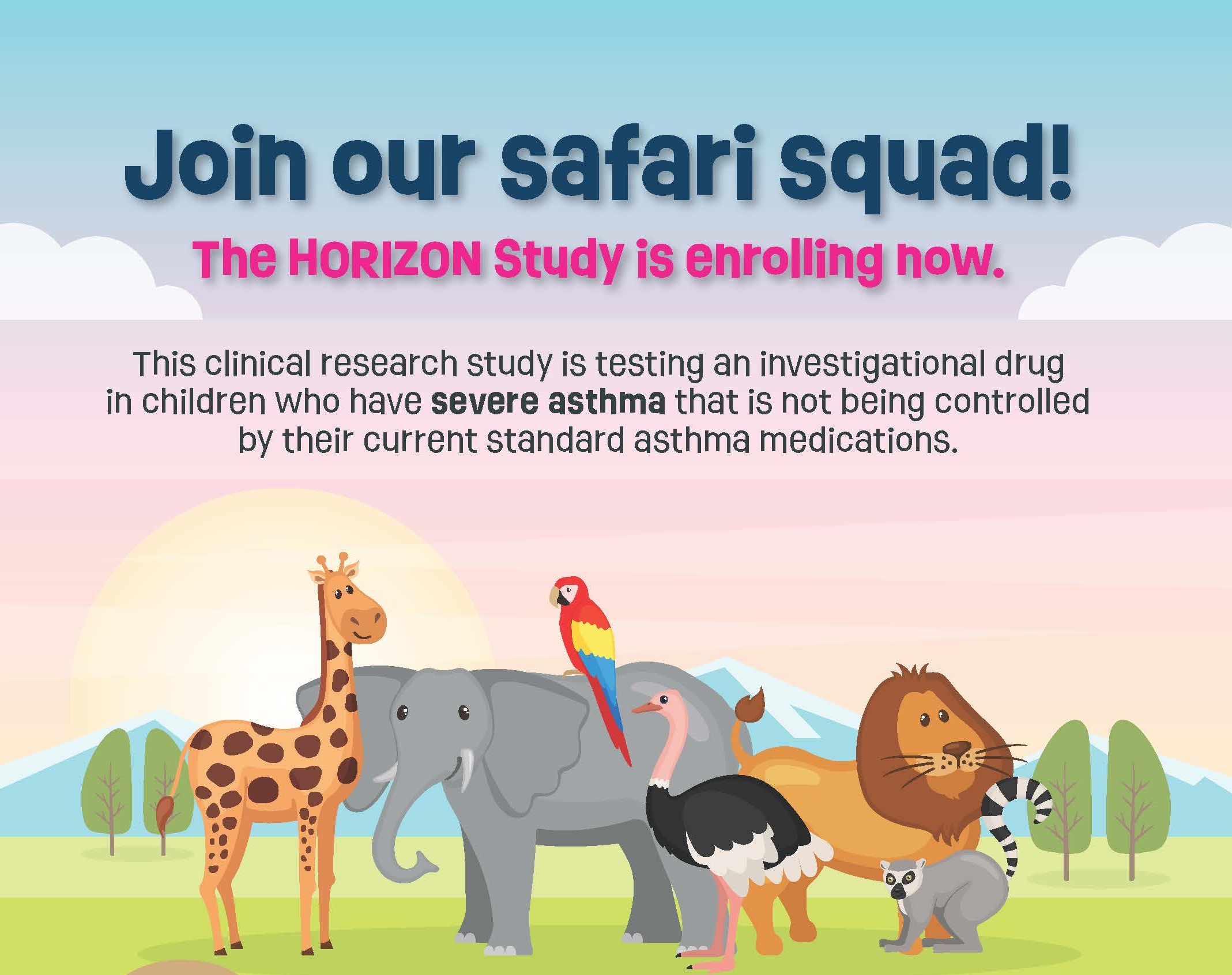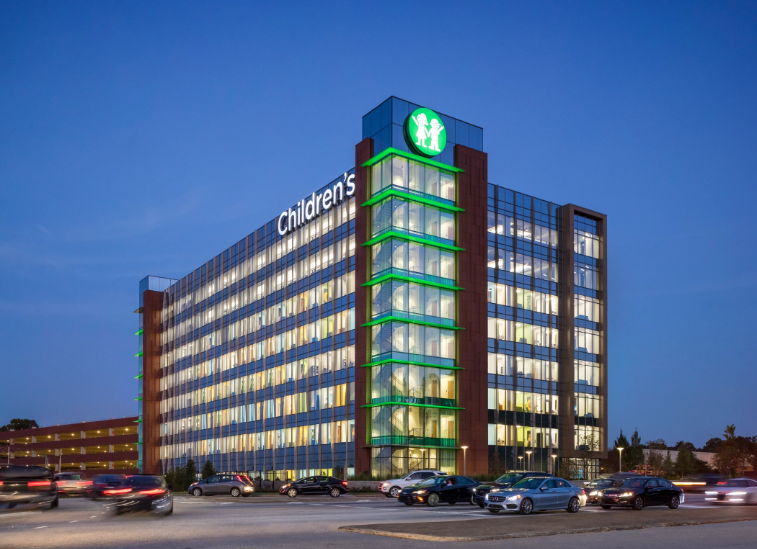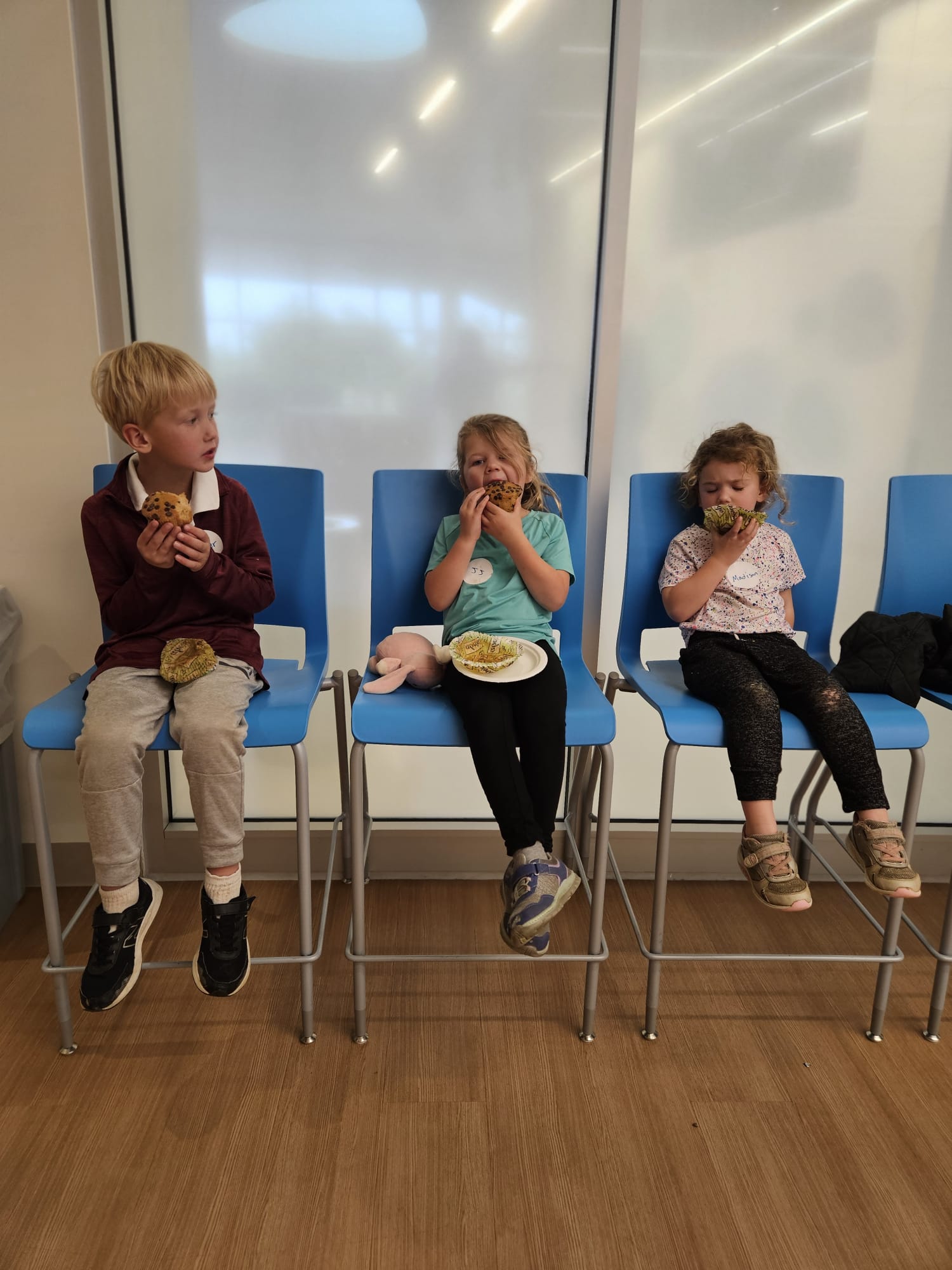Clinical Trials - Now Enrolling!
-
Now Enrolling: HORIZON by AstraZeneca - A Multicentre, Randomised, Double-Blind, Parallel-Goup Placebo-Controlled, Phase 3 Efficacy and Safety Study of Tezepelumab in 5 to <12 Year Old Children with Severe Uncontrolled Asthma (NCT06023589)
Send an e-mail to foodallergyresearch@choa.org if you would like more information about any of these studies and to find out how to enroll!
Our Program in the News!
- Interview on Georgia Public Radio with Dr. Vickery about Omalizumab (Xolair) for Food Allergy Treatment
Coming Soon
- Peanut Sublingual Immunotherapy Tablet (SLIT) by ALK-Abello (NCT05440643)
NOW ENROLLING
- Now Enrolling: VITESSE by dbv technologies a Safety and Efficacy Study of Viaskin Peanut in Peanut-allergic Children 4-7 Years of Age (vitesseallergystudy.com ; NCT05741476)
-
Short-Term Linvoseltamab Treatment, on Top of Chronic Dupilumab Treatment, for Adults With Severe Immunoglobulin E (IgE)-Mediated Food Allergy (NCT06369467)
No longer enrolling:
- [Completed] EPITOPE: Safety and Efficacy Study of Viaskin Peanut in Peanut-allergic Young Children 1-3 Years of Age
- [Completed] POSEIDON: Peanut Oral Immunotherapy Study of Early Intervention for Desensitization (1-3 years of age)
- [Completed] Study in Pediatric Subjects With Peanut Allergy to Evaluate Efficacy and Safety of Dupilumab as Adjunct to AR101 (Peanut Oral Immunotherapy) - for ages 6-17
- [Completed] Efficacy and Safety of QGE031 (Ligelizumab) in Patients With Peanut Allergy NCT04984876
- [Completed] Harmony by Alladapt - NCT04856865 ADP101 for Oral Immunotheray in Food-Allergic Children and Adults, ages 4 years to young adult
- [Closed to Enrollment] Omalizumab as Monotherapy and as Adjunct Therapy to Multi-Allergen OIT in Food Allergic Children and Adults (OUTMATCH)
-
[Closed to Enrollment] Adored by Siolta - NCT05003804 Allergic Disease Onset Prevention Study will be enrolling newborns up to 7 days of life to study STMC-103H, a live biotherapeutic product (LBP) containing a consortium of intestinal bacteria
-
[Closed to Enrollment] A Safety and Efficacy Study of PVX108 in Children and Adolescents With Peanut Allergy (NCT 05621317)
-
[Closed to Enrollment] VITESSE by dbv technologies a Safety and Efficacy Study of Viaskin Peanut in Peanut-allergic Children 4-7 Years of Age (vitesseallergystudy.com ; NCT05741476)
Palforzia and Early Peanut OIT in Infants and Toddlers
For more information about peanut oral immunotherapy treatment at Children's, visit https://www.choa.org/medical-services/allergy-and-immunology/peanut-allergy.
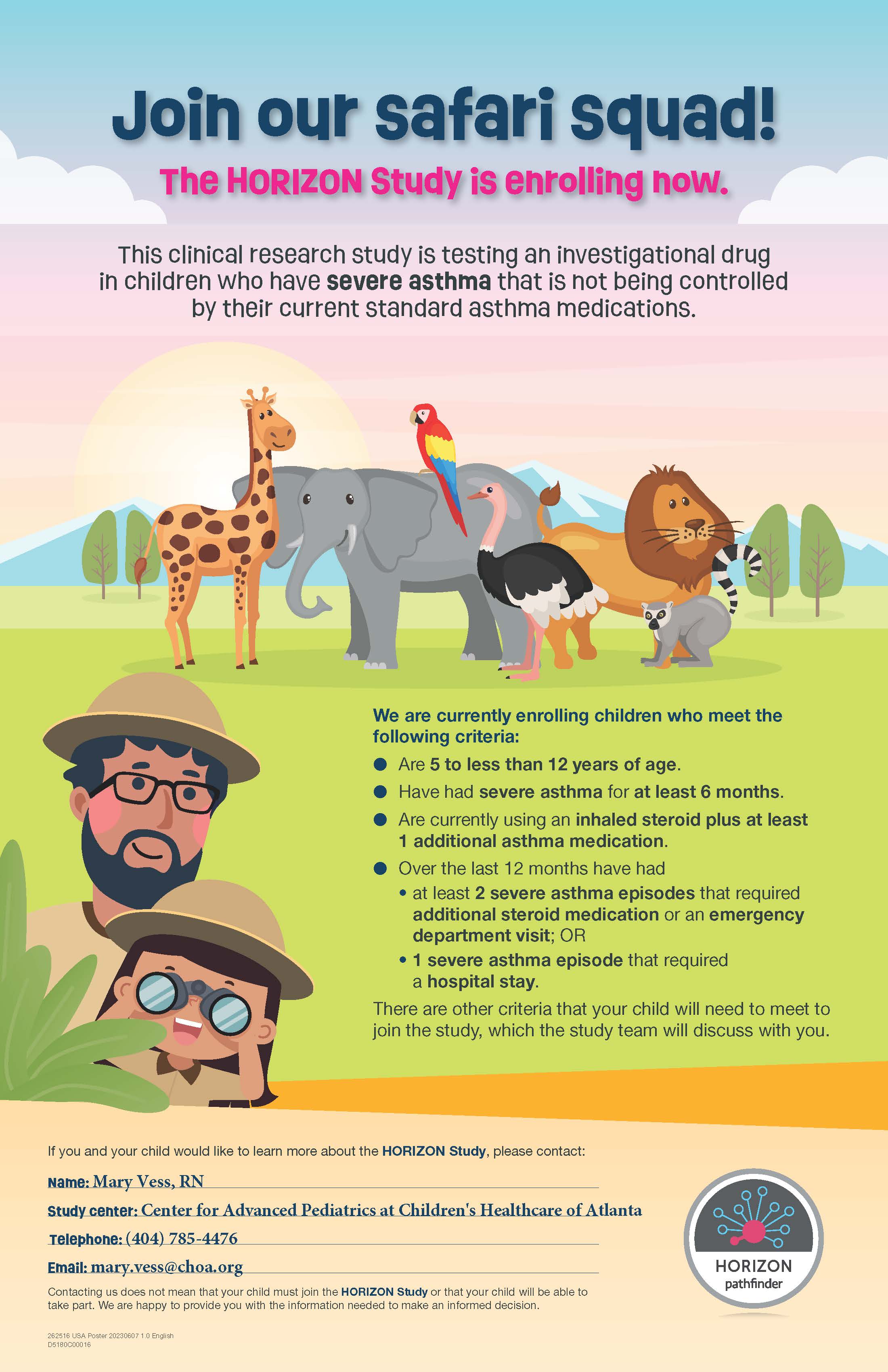
Our team works closely with colleages at Emory University and Children's Healthcare of Atlanta, and would like to share exciting research opportunities in therapeutic areas that are closely related to food allergy. Here are a few studies that might be of interest:
Asthma Research
For more information about currently enrolling clinical trials for Asthma treatment and prevention under the direction of Dr. Anne Fitzpatrick: https://www.pedsresearch.org/research-group/asthma-research
Psychology Research: We're conducting a study testing a new clinical tool measuring the impact of food allergy on parents and families! You may qualify if you are a parent or legal guardian of a child ages 2 to 12 years old with a food allergy. Click here for more information: https://redcap.choa.org/redcap/surveys/?s=NYHK9DLEP7WRNJYM
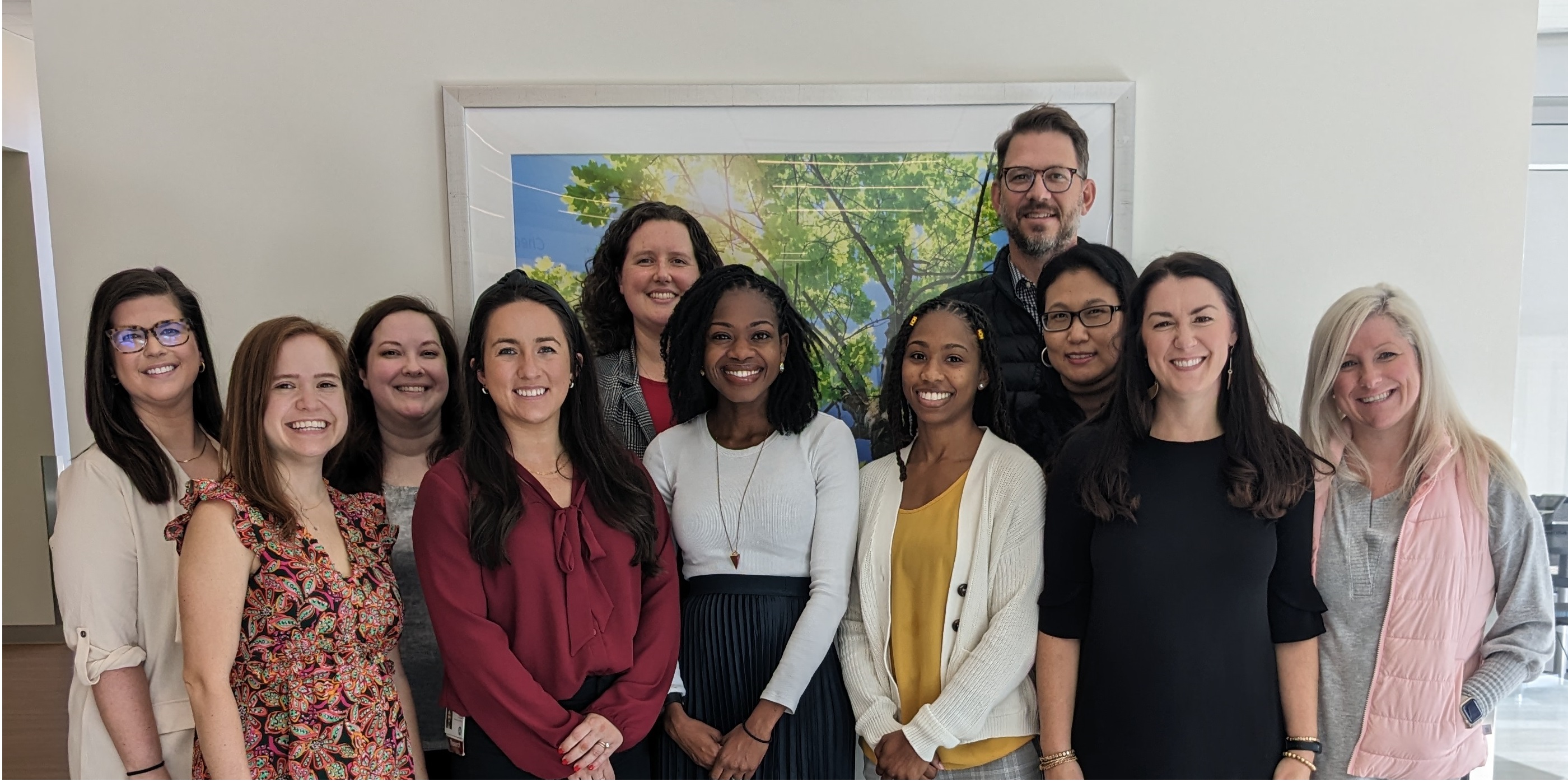
Center for Allergic Diseases Research at Emory and Children's
- Brian P. Vickery, MD
- Anne Fitzpatrick, PhD, RN, CPNP, MSCR
- Idil Ezhuthachan, MD
- Kaitlin Proctor, PhD, ABPP - Pediatric Psychologist
- Ashley Dulson, CCRP - Lead Research Coordinator
- Mary Vess, MSN, RN, CCRP - Senior Research Nurse
- Dhondup Tso King, MPH - Research Coordinator
- Cherish Caldwell, RN, MPH - Research Nurse
- Jalicae Norwood, MPH - Research Coordinator
- Carrie Mason, BS, RRT, AE-C - Pediatric Clinical Research Professional
- Rebecca Cleeton, MPH, CCRP - Clinical Research Manager
We are located at the Children's Healthcare of Atlanta Center for Advanced Pediatrics (2174 N Druid Hills Rd. NE Atlanta, GA 30329) and visits take place in the Pediatric Research Unit.
CLINICAL TEAM
- Brian P. Vickery, MD
- Tricia Lee, MD
- Idil Ezhuthachan, MD
- Melinda Rathkopf, MD, MBA
- Gerald Lee, MD
- Codi Horton, PNP
- Chelsea Bates, PNP
- Kaitlin Proctor, PhD, ABPP - Pediatric Psychologist
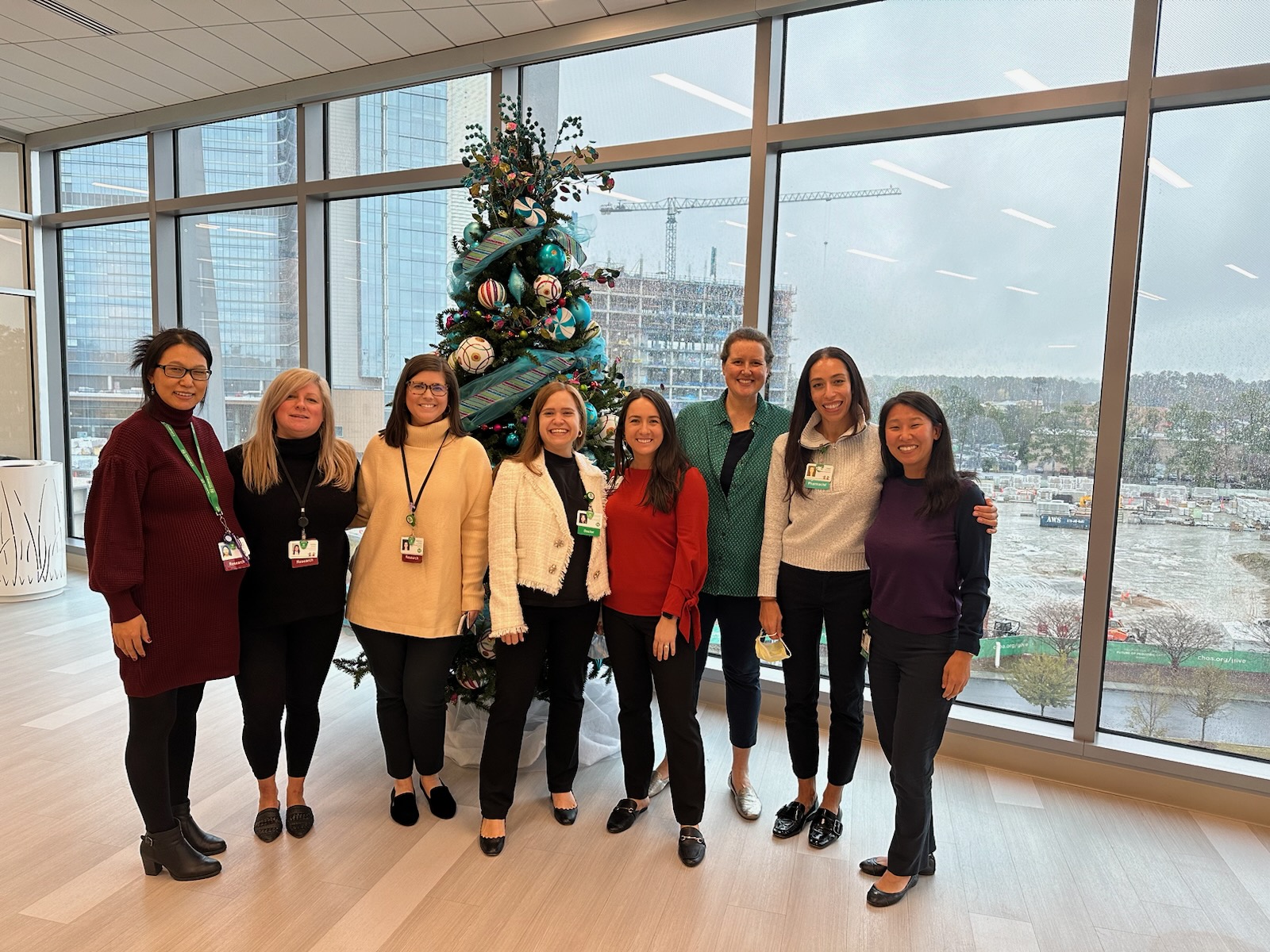
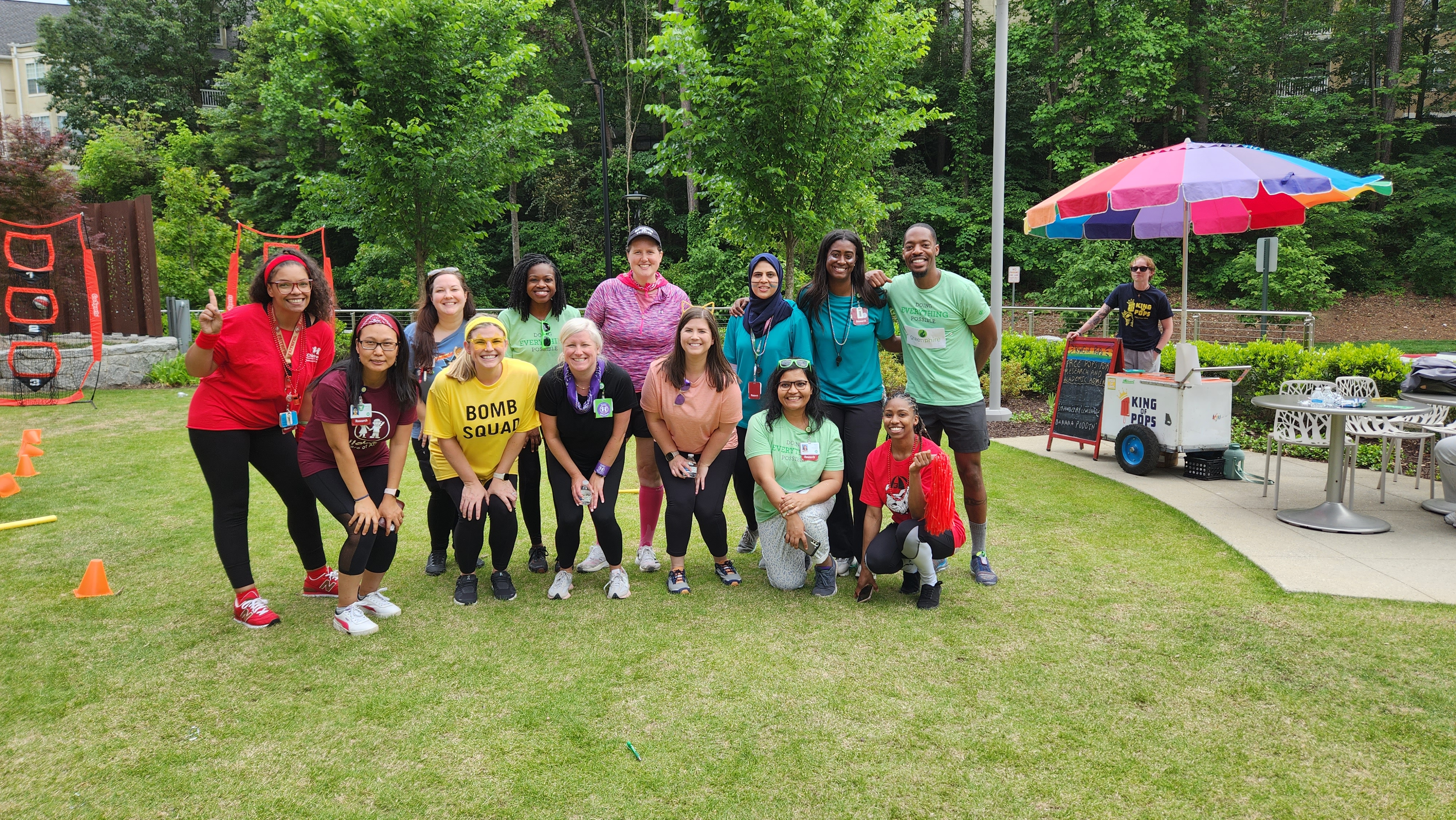
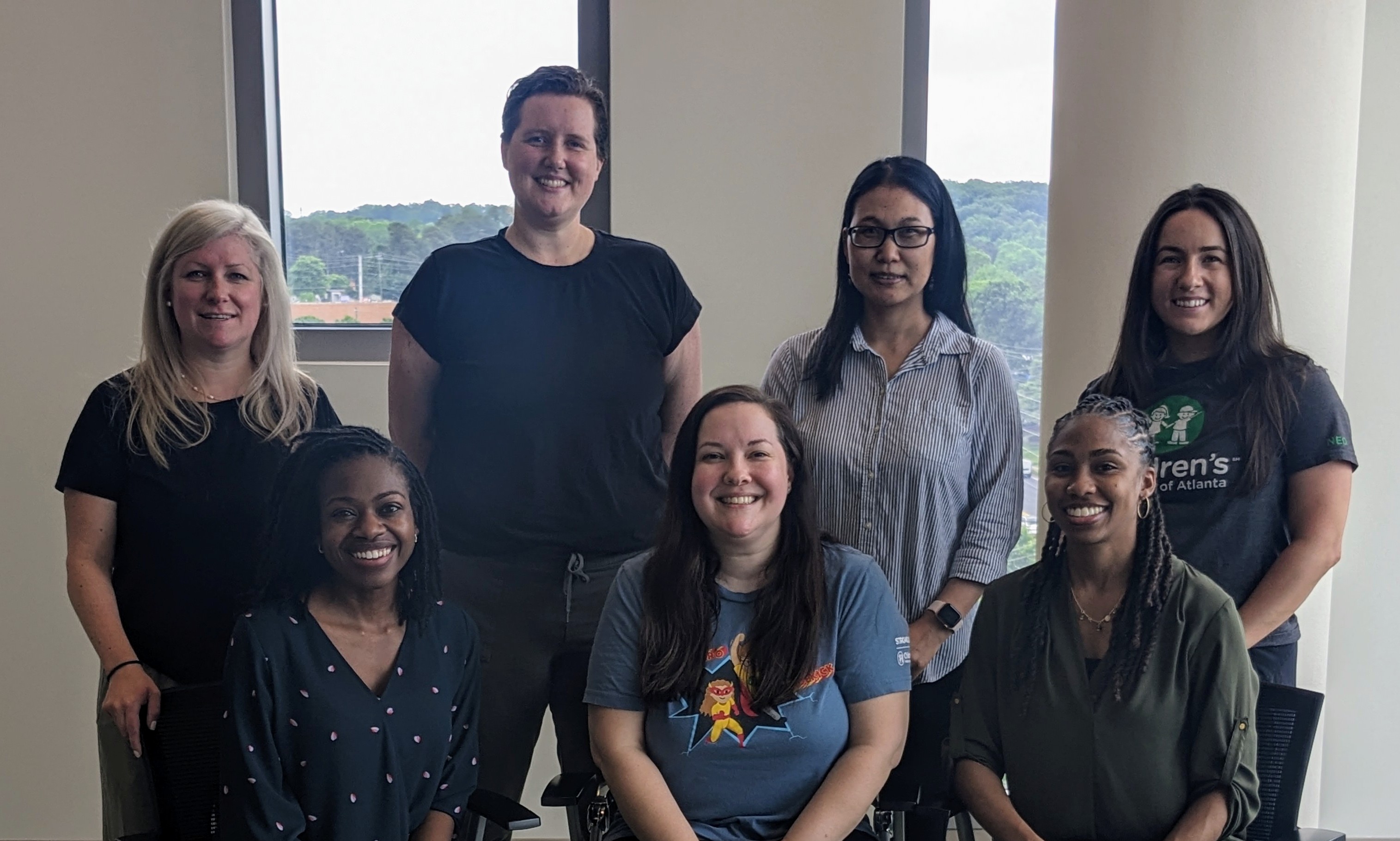
Thank you for your interest! Clinical research connects patients and families with experimental treatments and provides critically needed data to advance the field. The treatments of tomorrow are not possible without it.
If you are interested in learning more about experimental treatments for food allergy and potentially participating in a study, please click here to register yourself and/or your child. One of our team will be in touch afterwards if you qualify for a study.
Have a question? E-mail us: foodallergyresearch@choa.org
The U.S. Dept of Health and Human Services has a helpful website with resouces to help potential research participants better understand what is being asked of them: https://www.hhs.gov/ohrp/education-and-outreach/about-research-participation/index.html
To hear more about participating in a clinical trial, you're invited to watch this recording of a recent community event which covered a variety of topics including clinical trials at Children's, Food Allergy Clinical Trials, and what participation in a trial is like for families.
Millions of children worldwide suffer from food allergies, a poorly understood group of immune-mediated conditions that leave these children susceptible to serious allergic reactions and the psychosocial burdens of living with a chronic, unpredictable, and life-threatening disorder.
Our Mission
The mission of the Food Allergy Center at Emory + Children’s is to perform impactful research and deliver high-quality, high-value, patient-centered care to transform the lives of those affected by food allergy in the Southeast and beyond. The four core domains of this mission are:
To provide state-of-the-art clinical care to patients with food allergies and related conditions;
To create and disseminate new knowledge through research;
To advocate for children through stakeholder engagement at all levels; and
To provide a world-class training experience for the next generation of clinicians and scholars.
Our Philosophy and Vision
We will become a national leader in the study and treatment of food allergy and related conditions while adhering to the following five foundational principles:
- We are patient-centered: Everything we do is focused on meeting patient needs.
- We act with integrity: We hold ourselves to the highest moral and ethical standards.
- We treat all persons with dignity and respect: Everyone. All the time. No exceptions.
- We do not quit: 99% of success in science is not giving up. Our patients depend on it.
- We are a team: We are supportive of, and accountable to, one another. We have fun.
In a groundbreaking moment in the food allergy world, Children’s Healthcare of Atlanta’s Dr. Brian Vickery administered the first-ever dose of a new FDA-approved peanut allergy oral immunotherapy treatment for pediatric patients in March 2020. Two months prior, the FDA had approved the new oral immunotherapy, Palforzia, to treat children ages 4 to 17 with peanut allergy – making it the first and only FDA-approved treatment for any food allergy. Ian Bicknell, a 13-year-old Children’s food allergy patient, was the first pediatric patient nationwide to receive the therapy.
Watch more videos from FARE
Featured Video on Anti-IgE Therapy
This video is several years old now but still articulates beautifully why clinical research is critical to move this field forward.
Food Allergy Research and Education
Consortium of Food Allergy Research (in particular the "Food Allergy Education Program" tab)
Food Allergy Resources from the National Institutes of Allergy and Infectious Disease
Food Allergy Research and Resource Program from the University of Nebraska, Lincoln
FDA - Food Allergies: What You Need to Know
CDC - Food Allergies in Schools and other resources
Dr. Brian Vickery is a pediatric allergist-immunologist whose clinical and research efforts focus on understanding the pathophysiology of food allergies and anaphylaxis, and developing new therapies to treat them. He has studied all aspects of therapeutic development, from preclinical murine models to Phase 3 trials, and is particularly focused on the intersection of translational and outcomes research in generating rational, evidence-driven treatment strategies. He is currently an Associate Professor of Pediatrics at Emory University and the founding Director of the Food Allergy Center at Children’s Healthcare of Atlanta.
Dr. Vickery completed his undergraduate work at the University of Georgia and then obtained his medical degree from the Medical College of Georgia. He completed his pediatric residency and chief residency at New York-Presbyterian Hospital/Weill Cornell Medical Center, and his fellowship training in allergy & clinical immunology at Yale University School of Medicine, where he worked on a preclinical model of the investigational peanut allergy vaccine EMP-123 in the laboratory of Kim Bottomly, PhD. He subsequently held faculty positions at Duke University School of Medicine and then the University of North Carolina School of Medicine, where he was an NIH-funded researcher and the Director of the UNC Food Allergy Initiative. At UNC, he led a group that was first to show that sustained unresponsiveness (SU), or clinical remission, can occur after peanut oral immunotherapy (OIT) and subsequently demonstrated for the first time that the early treatment of peanut-allergic preschool children with OIT is safe and enhances the likelihood of SU. Prior to joining the Emory faculty, he led an international Phase 3 randomized clinical trial of peanut OIT, the largest of its kind, as senior medical director at Aimmune Therapeutics.
Dr. Vickery has published over 50 papers in leading journals, and serves as a peer reviewer for high-impact allergy journals and grant agencies, as well as a journal section editor. He has presented his work at national and international meetings and has contributed to the development of national food allergy treatment guidelines. He has received several awards for clinical care as well as research awards from the American Academy of Allergy, Asthma, and Immunology (AAAAI), the American College of Allergy, Asthma, and Immunology, and the British Society of Allergy and Clinical Immunology. He is active in the AAAAI, having held leadership positions on several committees, and is a member of FARE’s Outcomes Research Advisory Board. He is committed to developing the careers of the next generation of clinicians and researchers in allergy, and over the last 10 years has mentored 12 trainees, 9 of whom are in the academic or public sector.
To view a list of Dr. Vickery's publications on PubMed, please click this link.
